A sieving team using recycled water at a fair trade ruby mine located in Tanzania.
At a glance:
Our ethical rubies can be traced from mine to market, and are sourced from companies that have set up operations in Sri Lanka, Tanzania, and Malawi. On site, the companies work within their own established fair trade protocols, offering excellent wages and social benefits for the larger communities. Explore our ruby wedding rings and ruby engagement rings here. As artisan custom jewelers, if you can dream it, we can make it. Find out more here, or email info (at) reflectivejewelry.com. Find more info on our other ethical gemstones here, or about Fairtrade Gold here.
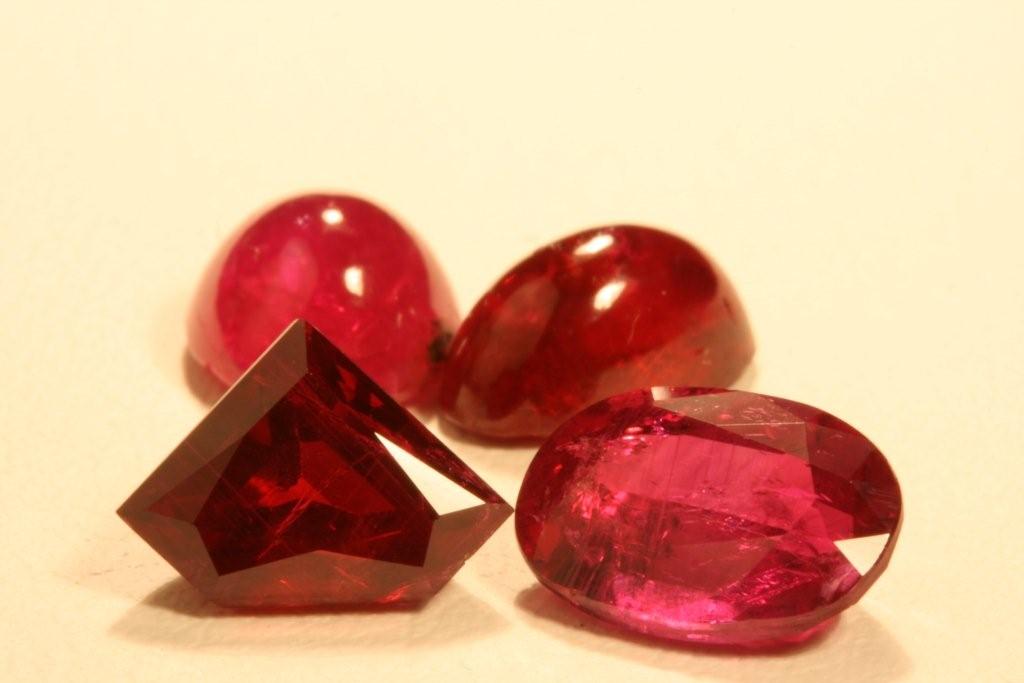
An ancient story describes rubies as originating from Vela, a primordial god. After his body was ripped apart in a great battle, his blood formed in pools — becoming the crystalline rubies scattered around certain parts of the globe. Vela represents a cathartic, primordial, untamed force, and the creative and destructive elemental energy of fire, water, and rock. The blood represents the life essence of that cosmic play. Buddha statues are often adorned with a ruby on the forehead, symbolizing the omniscient "third eye” — the eye of intuition and knowing which penetrates the thoughts and feelings of others.
We source the ethical rubies for your ruby wedding ring or ruby engagement ring from three places: Malawi, Tanzania, and Sri Lanka. In all cases, the companies that provide these rubies work under their own fair trade approaches. There's a complete mine-to-market chain of custody. And these rubies are completely natural — they do not undergo heat treatment.
We are also working on sourcing rubies from small-scale Inuit miners in Greenland, and have been campaigning for their rights through our Fair Jewelry Action network since 2009. As of today, a viable export channel of distribution to international markets has yet to be created. But we are hoping that the situation will change in the future.
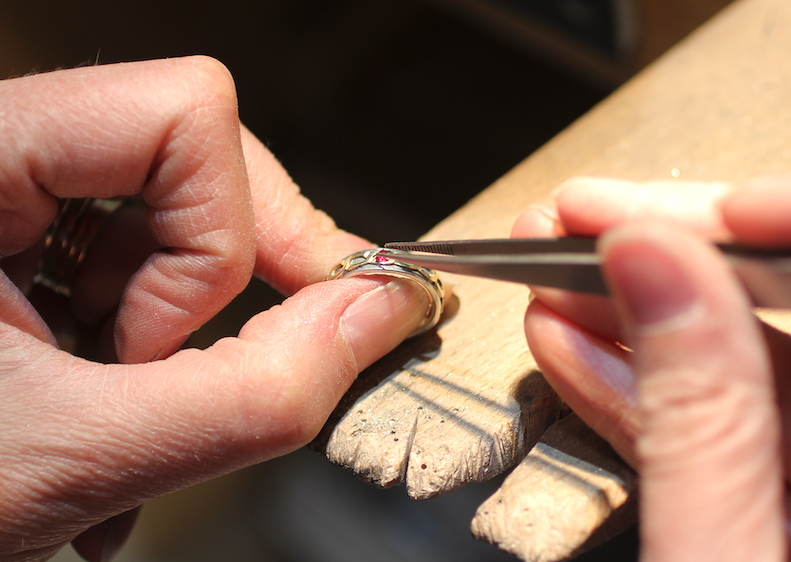
Here, one of our artisan jewelers sets a two-tone gold-over-silver Rope Wedding Ring with ruby. A ruby wedding ring or ruby engagement ring is always an excellent choice!
Malawi Rubies
One of the companies we source from operates in Malawi. The zones around the mine and the village are protected, and all water sources are safeguarded. Impact from the mine areas is minimized through reclamation efforts.
Fair compensation well above any minimum wage is paid to miners. There are bonuses, promotions, and health insurance. In addition, this company has built a school that has an enrollment of 450 for the children of miners and others in the village.
These rubies are cut in China, at a facility paying three times the standard wage. Workers there are given free room and board, a food allowance, paid vacation, paid overtime, and disability. An annual bonus and unemployment insurance are both available.
Tanzanian Rubies
Our Tanzanian rubies are mined by a small company that was founded in 2008 by an international photo journalist and his Tanzanian friend. Miners there are fed, housed, and paid above the standard wages for skilled craftsmen. They also share in bonuses.
Before any mining exploration takes place, an environmental impact statement is conducted. During the mining process, recommendations of the study are strictly followed. Mining is done horizontally on a hill and erosion is controlled at all times. Topsoil is removed and placed adjacent to the pit. As sections are completed, rock soil — followed by topsoil — is replaced. Horizontal, terraced areas with topsoil are created. Local farmers utilize these for crops, which are rotationally planted.
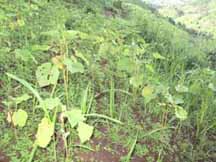
A reclaimed mining area in Tanzania.
Water is sourced directly from a spring, and stored in tanks. After being used in the mine, water with sediment is allowed to settle before it is recycled. Thus, local water supply is not degraded. Villagers unaffiliated with the mine also have access to the clean water supply from the tanks.
In terms of community support, this mine makes regular contributions to a local hospital. They’ve also invested in road improvement, allowing easier access to the village where the mining takes place.
Cutting is done in Dar es Salaam, Tanzania — meaning the local Tanzanian economy reaps further benefits from this mining. The operation in question has been cutting gemstones since 1958, and uses SEAMIC (Southern and Eastern African Mineral Centre) -trained cutters.
Sri Lankan Rubies
Some of our ethical rubies are from Sri Lanka.
We source these rubies s from a small-scale mining Sri Lankan cooperative — a tiny operation employing just eight miners and a foreman. They work cooperatively as shareholders, meaning each member of the group receives a percentage of every sale. Mining is done by hand, which means that the supply will support generations.
The rubies are also cut in Sri Lanka by a local facility that has excellent working conditions. They pay above the going rate in order to attract, keep, and nurture highly skilled cutters. Cutting in Sri Lanka provides additional downstream local economic benefits for the local community.
The polishing factory funds a school, as well as the education of its employees. It also provides a subsidized canteen and helps to cover accommodations.
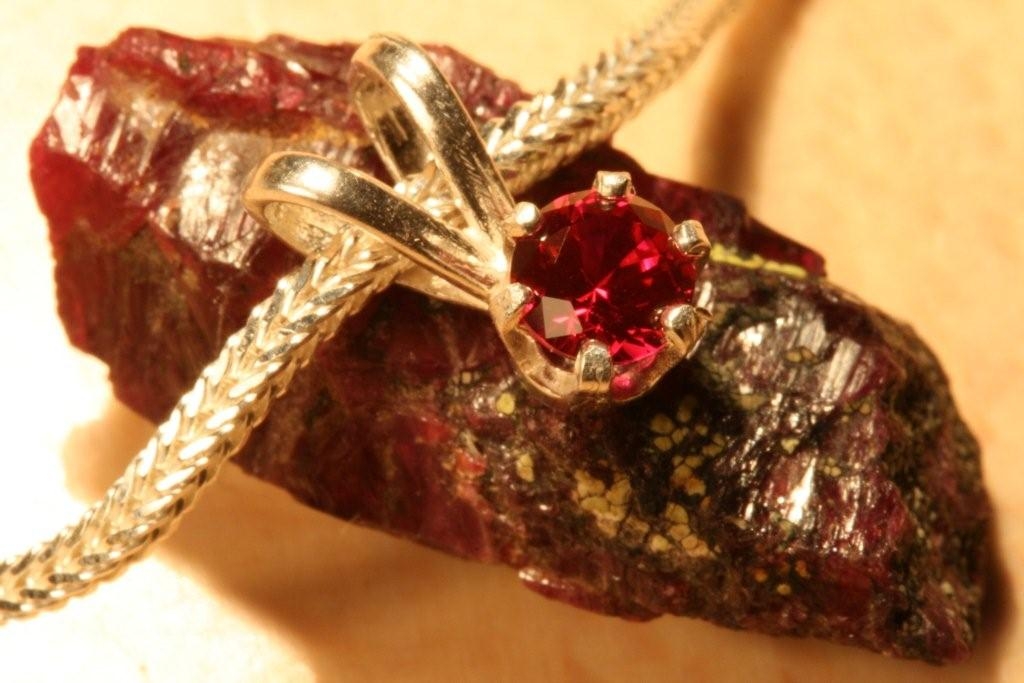
Rubies have an undeniable allure, and make beautiful pendants, engagement rings, and wedding rings.
Greenland Rubies
Greenland Ruby is all-natural product from a native source in an entirely un-treated state. The Greenland ruby is the oldest ruby in the world, and some say the wisest. It has become the “Anvil of Independence” as a young nation emerges from the last vestiges of colonialism in modern Europe. It is a chalice of Inuit awakening in a time of global warming and drastic climate change in the Arctic.
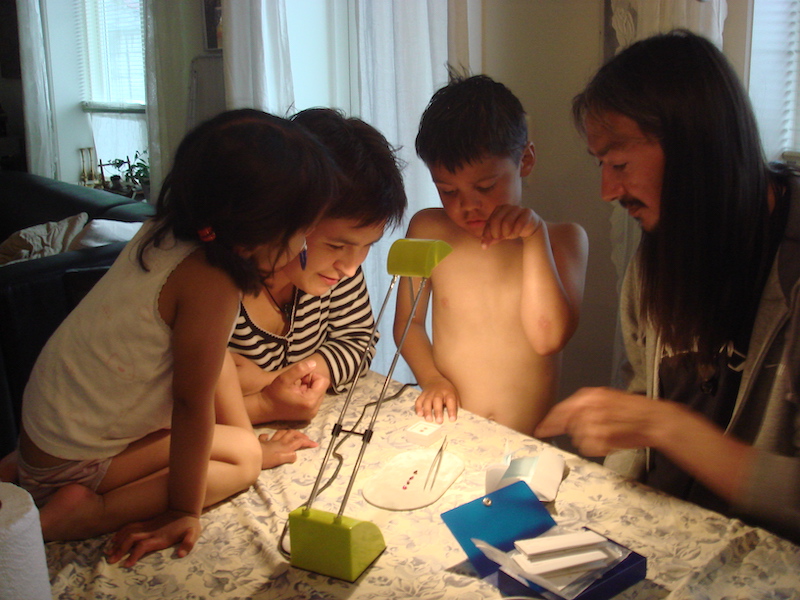
For Inuit Greenlanders, ruby mining is a family affair.
We were involved in the Greenland Ruby campaign. Marc broke the story with this article, which began a Fair Jewelry Action campaign.
Marc Choyt is former president of Reflective Jewelry, a designer jewelry company founded in 1995. He pioneered the ethical sourcing movement in North America and is also the only certified Fairtrade Gold jeweler in the United States. Choyt’s company was named Santa Fe New Mexico’s Green Business of the Year in 2019, and he has been honored with several awards for his efforts to support ethical jewelry. His ebook, Ethical Jewelry Exposé: Lies, Damn Lies and Conflict Free Diamonds, is available online.